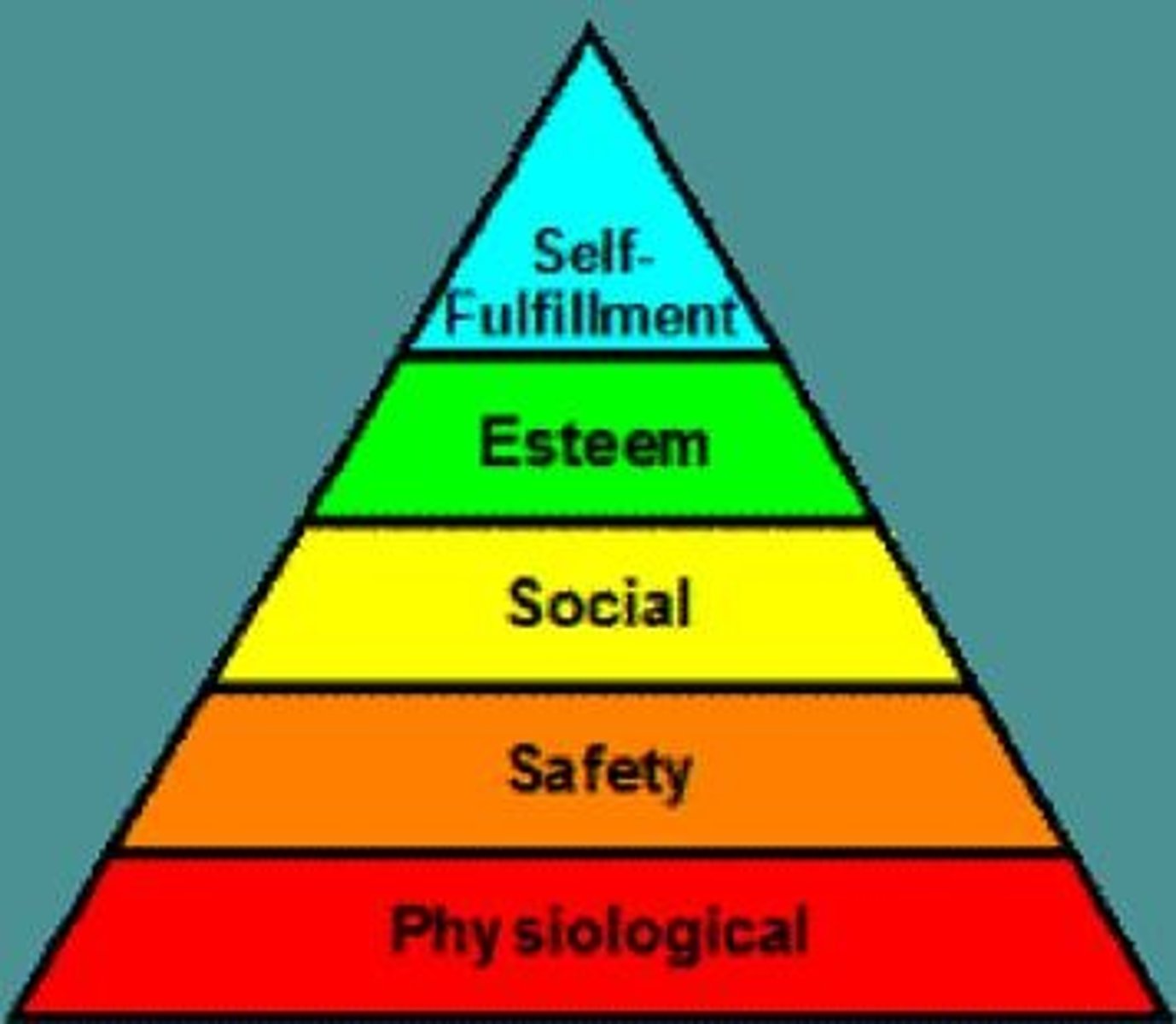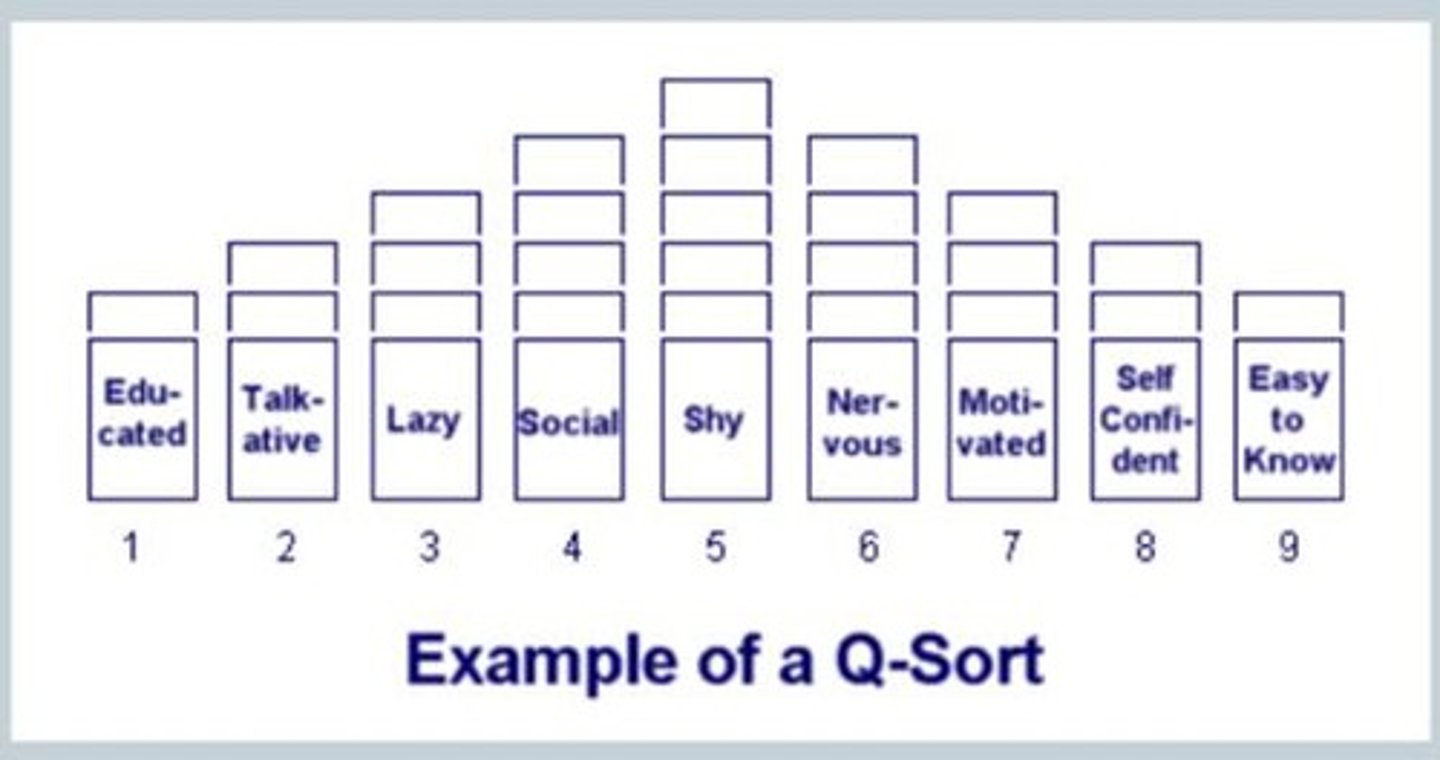Week 12 - Self-Actualization and Self-Determination
1/46
There's no tags or description
Looks like no tags are added yet.
Name | Mastery | Learn | Test | Matching | Spaced | Call with Kai |
|---|
No analytics yet
Send a link to your students to track their progress
47 Terms
Actualization
The realization or fulfillment of an organism's talents and capabilities in ways that maintain and enhance the individual.
Self-actualization
Maintenance and enhancement of the self.
Peak Experience
Intense moment of self actualization.
Need for relatedness
Associated with positive and open communication.
Self-concordance
Pursuing goals that are consistent with one's core values.
Organismic Valuing Process
The automatic evaluation of the self to determine whether they are enhancing actualization.
Free will
Freedom to decide how they act and what they want to become.
Reactance
The attempt to regain or reassert one's free will when one feels their free will is being threatened.
Fully Functioning Person
Describes a person who is self-actualizing; they are open to and trust their feelings.
Positive Regard
Affection given without conditions or expectations.
Conditional Positive Regard
Affection given only after fulfilling conditions or requirements- only receiving affection if you act in a particular way.
Conditions of Worth
The conditions imposed on a person (usually by the self) necessary to receive positive regard.
Conditional self regard
Given when we feel we've fulfilled our conditions of worth, and is the reward that drives us to choose our behaviors, values, and goals.
Contingent Self Worth
Refers to using one's performance in something (ex. academics) as a condition of self acceptance.
Introjected Regulation
Sculpting one's behavior because of an external influence or feeling that they 'should' act a certain way.
Identified Regulation
Sculpting one's behavior because of an internal, self-determined value.
Self Esteem
Maintenance & enhancement- use defenses to maintain congruence and integrity of self.
Threat to self esteem
Dealt with by distorting experience to minimize negativity of the threat or prevent attribution to qualities of the self.
Three Conditions for Self-Determination
1. Autonomy 2. Competence 3. Relatedness.
Reward Implications
Can be controlling if one feels that he/she does not have autonomy over his/her actions.
Informational aspect
Can inform you about yourself, either implying a condition of worth or induce an action solely for the purpose of a reward.
Relatedness
People have a desire for open and positive communication with significant others.
Best scenario
When relationship partners support autonomy, improving the quality of the relation.
Congruence
Ideal self and actual self fit together.
Incongruence
Disorganization; fraying unitary sense of self.
Distortion of experiences
A defense mechanism that alters perception of reality.
Rationalization
Creating a plausible but false explanation.
Denial
Refusing to admit that a situation happened.
Avoidance
Not letting you be in a situation that could cause an unwanted experience.
Self-handicapping
Creating conditions that tend to produce failure (ex: going to the gym hours before your interview and arriving unkempt and sweaty).
Stereotype threat
Poor performance is assumed due to being of a certain group (poor performance confirms stereotype).
Maslow's Hierarchy of Needs
Can't have higher needs fulfilled without starting with fulfilling lower ones.

Physiological needs
Air, water, food, and so on.
Safety and Security needs
Shelter from weather, protection against predators.
Love and Belonging needs
Need for companionship, affections, and acceptance (social).
Esteem needs
Sense of mastery and power; sense of appreciation from others.
Acceptance
May not be evaluative.
Appreciation
Esteemed for some quality you possess.
Self-actualization
Tendency to become whatever you're capable of; extend yourself to limits of capacities.
Peak experience
Moment of intense self-actualization (feeling like you are truly living life).
Existential psychology
Existence is all anyone has and life only has meaning if you create one.
Existential guilt
Failing to fulfill your possibilities.
Daesin
Being the world (important to existential psych).
Terror management theory
Is the reason why people view themselves as separate from other animals.
Q-sort
To measure self concept; which qualities are most and least like you.

Goal of therapy
Reintegrate disorganized self; reverse process of defenses; encourage unconditional positive regard, restatement if cognitive content, clarification of feelings.
Client/person centered therapy
Client takes responsibility for improvement and therapist displays empathy/unconditional positive regard.